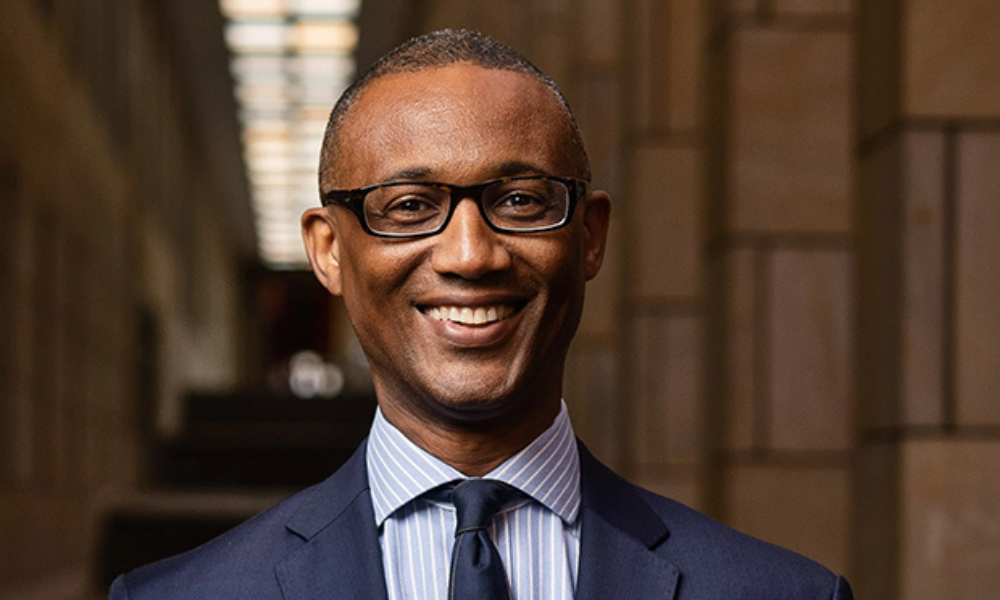Behavioural economics expert Herman Brodie reveals the two crucial components to a trust-driven client relationship

This article was produced in partnership with the Investments & Wealth Institute.
In every relationship in the financial services industry, the client expects their servicing firm to have a certain amount of professional expertise and knowledge. But is that enough to create long-lasting, sustainable bonds – or do they need something more?
To find out, Wealth Professional interviewed Herman Brodie, a behavioural economics specialist and founder of UK-based consultancy firm Prospecta. Brodie is one of the authors of “The Trust Mandate,” which examines the truth behind what drives clients and investment consultants to trust one asset manager over another.
Wealth Professional: How important is it for financial professionals to cultivate trust with their clients?
Herman Brodie: The research my co-author Klaus Harnack and I did for our book aimed to answer one question: why does the client choose you – or someone else – to manage their money and assets? If the client doesn’t choose you, you don’t have a business, and a client’s decision to stay with a manager during difficult times is driven by their trust in that advisor. So it’s absolutely essential for you as a professional to gain the client’s trust.
In our study, we defined trust as driven primarily by two judgments the client makes about the financial professional: how competent the person is, and whether that person has the client’s best interests at heart. Between those two drivers, it’s in fact the second one that’s most important. Is this person motivated to make good things happen for me?
By the time a client is sitting in front of a financial professional, they’ve probably already decided that person is competent. What a lot of people are bad at is conveying to the client their benevolent intentions so as to cultivate warmth in the relationship.
WP: One big conversation in the Canadian wealth space focuses on the importance of having professional titles, which includes minimum proficiency standards and an obligation to act in the client's interests. Is that enough to maintain trust with clients?
HB: Generally, titles, certifications, and proficiency standards are a good thing: people are sensitive to those when they look for signals about a financial professional’s competence. Relationships can survive on competence signals alone, but those tend to be more transactional and more distant. You can get a piece of someone’s business from that, but they’re not going to trust you with very sensitive matters relating to their wealth, which also to be the highest-margin businesses.
Increases in proficiency standards apply to everybody; it’s a tide that lifts all boats. But the drive to convey benevolent intentions is where advisors have the greatest potential to distinguish themselves from competitors. An advisor can be a fiduciary, absolutely, but it takes more than that to have a high-trust relationship. The client has to believe that the other person genuinely cares, and is not just doing things because the rules say they have to.
WP: With rising rates and inflation raising challenges for investors, a lot of concerned clients are probably looking to their advisors for guidance right now. What should advisors and wealth professionals should keep in mind as they have these conversations?
HB: From a competence perspective, people will forgive you for a while during drawdown periods if you’d already built up a very long and successful track record of performance. In the same way, during these moments of high anxiety, you need to have already built up a reserve of benevolence judgments with your clients. It’s these reserves of trust that you draw from when clients are feeling uncertain and vulnerable, and you need to be building those reserves up all the time.
When talking with clients, practice active listening: that includes paying attention to what someone is saying in the moment, and restating what they said to confirm that you understood. Acting with integrity – saying what you will do, and diligently doing what you said – also helps fuel benevolence judgments. Take the time to educate clients at their level of understanding, because it’s difficult to ignore when you go through a great deal of trouble for them.
And when it comes to sustaining a high-trust relationship over a lifetime, right at the top is the idea of value congruency: what are the client’s values, and what values do I share with them? When you meet a client and make decisions with them, frame it in terms of those shared values … every time you get together, you have to touch that stone.
Herman Brodie will join other experts to share more insights at the Investments & Wealth Forum – Toronto. With the theme “Facilitating Sustainable Behavioural Change,” the event will be held in-person on October 3 and available on demand starting October 7. For more information, click here.



